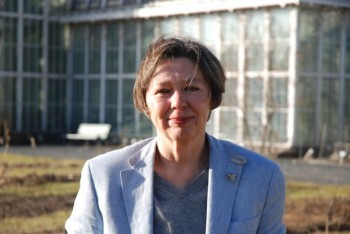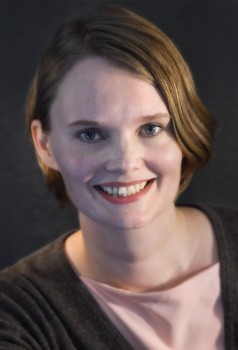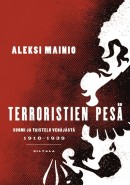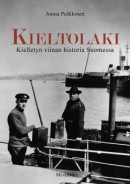Oh misery me
3 December 2014 | Non-fiction, Tales of a journalist
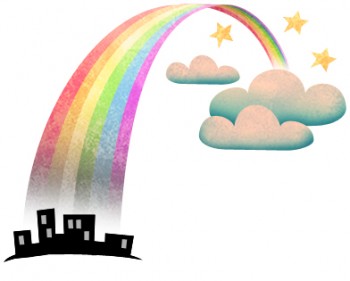
Illustration: Joonas Väänänen
The Finnish media never pass up an opportunity to post articles on our favourite miseries, says columnist Jyrki Lehtola: Finns are great at wallowing in self-denigration, so it sells well. And life is always better somewhere else, isn’t it? At least in ‘Europe’ it is
They should never have let us Finns into Europe. Or North America, South America, Australia, Africa, Asia.
Another Nordic country might perhaps suit us, or Albania or Russia. We could visit them.
Europe doesn’t suit us. Europe makes us even more stupid than we already are. Europe makes us think less of ourselves and more of other people. More…
You may say I’m a dreamer
25 November 2014 | Fiction, poetry
Prose poems from Tärnornas station – en drömbok (‘The Lucia Maids’ Station – a dream book’‚ Ellips, 2014). Introduction by Michel Ekman
I nurse a very small, perfectly formed child. It’s a girl. She smiles openly at me, even though she is so small. There is no doubt, neither about that nor anything else. The girl is the size of a nib pen, and just as exclusive. The nursing is going very well, it doesn’t hurt, and she can suckle without any problems. We are both at ease and yet awake, not introspective. The girl has intelligent eyes.
The milk keeps flowing.
Nothing runs dry.
Everything is obvious and neither of us is surprised. Just the fact that she is so small. Like a fountain pen. She is swathed in strips of bird cherry white bandages – like the ones mum had in her summer medicine cabinet – a cocoon, a chrysalis, but she’s not cramped, just secure. It smells good around us. I nurse my daughter who is perfect and the right size.
![]()
Year of the cat
13 November 2014 | Fiction, Prose
Extracts from the novel Kissani Jugoslavia (‘Yugoslavia, my cat’, Otava 2014). Introduction by Mervi Kantokorpi
I met the cat in a bar. And he wasn’t just any cat, the kind of cat that likes toy mice or climbing trees or feather dusters, not at all, but entirely different from any cat I’d ever met.
I noticed the cat across the dance floor, somewhere between two bar counters and behind a couple of turned backs. He loped contentedly from one place to the other, chatting to acquaintances in order to maintain a smooth, balanced social life. I had never seen anything so enchanting, so alluring. He was a perfect cat with black-and-white stripes. His soft fur gleamed in the dim lights of the bar as though it had just been greased, and he was standing, firm and upright, on his two muscular back paws.
Then the cat noticed me; he started smiling at me and I started smiling at him, and then he raised his front paw to the top button of his shirt, unbuttoned it and began walking towards me. More…
The day of mourning
6 November 2014 | Fiction, Prose
Extracts from the novel Katedraali (‘The cathedral’, Teos, 2014). Introduction by Mervi Kantokorpi
I am here now, at this funeral; I’m sitting on a puffy rococo chair which stands in the corner of this large living room – hall – on a Berber rug, one of a series of four pieces of furniture. The fourth is a curly-legged table, painted matt white. I wriggle like anything, trying to rid myself of my too-tight shoes. Fish thrash their tails in the same way. The lady in the dry cleaner’s told me she hates fish. She said that clothes that smell of fish and are brought into her shop make her shake with loathing but also bring her satisfaction because she can wash the awful stench away.
My shoes are impossibly small. They pinch my feet worse every moment. My back aches, too, despite the painkillers. You can’t swallow pills forever, so I just try to find a better position and put up with it. Finally my shoes leave my feet. I kick them underneath the table so that they can’t be seen. I can breathe again. In my shoes I felt as if I were sinking under the ground.
My father once showed me the Stephansdom catacombs. Thousands of people were buried here, before that, too, was forbidden by someone, he said. More…
The coder’s Latin
30 October 2014 | Articles, Non-fiction

Pleasant interface still? Old book bindings (Merton College library, Oxford, UK). Photo: Wikipedia
Writing is arguably brain-control technology, notes our columnist Teemu Manninen. Writing might not be on its way out, at least not quite yet, he thinks, but the printed book might not stay with us for ever. And would that be a happier world?
When the future of literature is discussed, either here in Finland and elsewhere, topics usually revolve around changes in the economics and practicalities of reading, writing, and publishing: how will writers and publishers get paid, and how can readers find more books to read.
What is taken for granted in these instances is that literature itself will continue to be something that exists in a recognisable way – which itself of course implies that writing itself will remain a viable mass medium for the transmission of information over the transcendent, enormous, unfathomable gulfs of space and time, as it has been for thousands of years. More…
Back to the sources
23 October 2014 | Essays, Non-fiction, On writing and not writing

In this series, authors discuss the difficulties of their trade. Jari Järvelä finds it difficult to stop gathering source material which then gets piled in towers on his desk and in sacks around it. He knows that it’s got to stop though – for when it does, the stories will finally emerge, and life is a bliss… for a moment
When I was younger I thought that writing a novel began with the moment when I sat down at my desk and pressed a key for the first time. A. Hmmm…no, H. No, let’s make that S. No no no, I need a more original beginning…Z!
That’s not the case. The writing of a novel begins between two and twenty years before the choice of the first letter and the first word. Sometimes longer.
In the case of my novel Särkyvää (‘Fragile’, 2014), I know the exact moment of its birth.
Before I began to make a career as an author, I spent a year as a teacher at Hamari school in Porvoo. It was the beginning of the 1990s. Hamari was an old sawmill community on the sea, full of wooden houses more than a century old and motor boats put-putting toward the horizon. The headmaster looked more like a sea dog than a teacher; one morning he announced that it was his fortieth birthday. After that he sat down on the staff-room sofa, fell into deep thought and suddenly ejaculated, ‘Why the hell does a person have to gather so much junk in their life?!’ More…
Journey to the first palm tree
16 October 2014 | Fiction, Prose
Teemu is a fat, desperate middle-aged man who’s had it with life – he drives his old Lada to Spain, where he intends to commit suicide by letting himself be trampled to death by bulls in the Pamplona bullrun. (However, there is a chance of this tragedy being cancelled, thanks to a tenacious hitch-hiker, female.) An extract from the novel Särkyvää (‘Fragile’, Tammi, 2014)
When I was seventeen, I yearned to leave behind the small town where I grew up. I heard the owl hooting in the forest: go to Europe.
I heard the dirt-track gravel crunching beneath my shoes: run, lad, run.
The birch in the yard rustled and whispered: if you spend one more summer hanging around the garden of your childhood, you’ll stay here forever.
A frog in the ditch gave a stern croak: look at your father; if you don’t escape you’ll end up an old codger just like him.
Even the smoke twirling up from the sauna chimney spoke to me in billows: I’ll show you the right direction, head south, and don’t stop until you see the first camel. More…
Letters from Tove
6 October 2014 | Extracts, Non-fiction
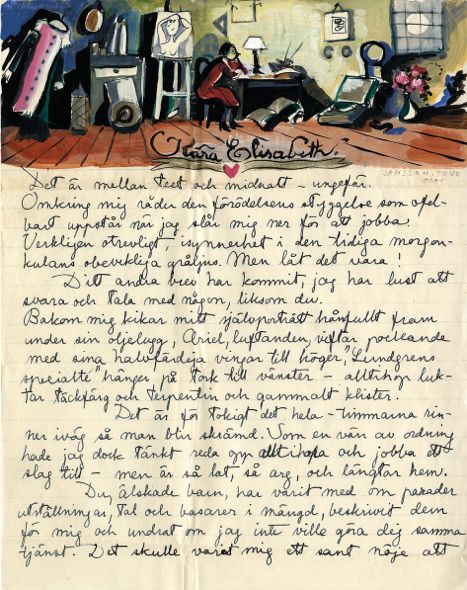
Early days: Tove Jansson went to Stockholm to study art when she was just 16. A letter to her friend Elisabeth Wolff, from November 1932
Artist and author Tove Jansson (1914–2001) is known abroad for her Moomin books for children and fiction for adults. A large selection of her letters – to family, friends and lovers – was published for the first time in September. In these extracts she writes to her best friend Eva Konikoff who moved to the US in 1941, to her lover, Atos Wirtanen, journalist and politician, and to her life companion of 45 years, artist Tuulikki Pietilä.
Brev från Tove Jansson (selected and commented by Boel Westin and Helen Svensson; Schildts & Söderströms, 2014; illustrations from the book) introduced by Pia Ingström
7.10.44. H:fors. [Helsinki]
exp. Tove Jansson. Ulrikaborgg. A Tornet. Helsingfors. Finland. Written in swedish.
to: Miss Eva Konikoff. Mr. Saletan. 70 Fifty Aveny. New York City. U.S.A.
Dearest Eva!
Now I can’t help writing to you again – the war [Finnish Continuation War, from 1941 to 19 September 1944] is over, and perhaps gradually it will be possible to send letters to America. Next year, maybe. But this letter will have to wait until then – even so, it will show that I was thinking of you. Curiously enough, Konikova, all these years you have been more alive for me than any of my other friends. I have talked to you, often. And your smiling Polyfoto has cheered me up and comforted me and has also taken part in the fortunate and wonderful things that have happened. I remembered your warmth, your vitality and your friendship and felt happy! At first I wrote frequently, every week – but after about a year most of it was returned to me. I wrote more after that, but the letters were often so gloomy that I didn’t feel like saving them. Now there are so absurdly many things I have to talk to you about that I don’t know where to begin. Koni, if only I’d had you here in my grand new studio and could have hugged you. After these recent years there is no human being I have longed for more than you. More…
The painter who wrote
6 October 2014 | Non-fiction, Reviews
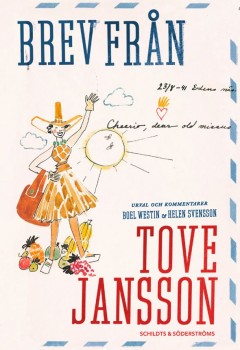 Brev från Tove Jansson
Brev från Tove Jansson
Urval och kommentarer Boel Westin & Helen Svensson
[Letters from Tove Jansson, selected and commented by Boel Westin & Helen Svensson]
Helsingfors: Schildts & Söderströms, 2014. 491 pp., ill.
ISBN 978-951-52-3408-7
€34.90
In Finnish (translated by Jaana Nikula):
Kirjeitä Tove Janssonilta
ISBN 978-951-52-3409-4
Nothing could be more mistaken than to describe Tove Jansson as ‘Moominmamma’. In her statements she was both cutting and complex – conflict-ridden and full of paradoxes. And she was nobody’s mamma.
Tove Jansson (1914–2001) became world famous (especially ‘big’ in Japan) with her Moomins – the characters of her illustrated books for children (1945–1970) – and her books for adults are a part of her work that is at least as interesting. Her training, ambition and artistic passion were, however, focused on painting.
Anyone who has read Boel Westin’s excellent biography – now available in English, Tove Jansson: Life, Art, Words – ‘knows’ all this, but to experience it through Jansson’s own letters, in an alternating process of reflection and recreation, brings the problems close to the reader in quite a different way: one that is shocking, but also deeply human. More…
Profiles
2 October 2014 | Fiction, Prose
Rosa Liksom’s first book, in 1985, was a collection of short prose; she has also written novels, children’s books, plays, comic and picture books. Her new book, Väliaikainen (‘Temporary’, Like, 2014) – a return to her signature very short prose – features beasts, machines and men
He’s there in the living room. We’ve gotta be very quiet. I left the computer on, and the reading lamp. I’ll go in and turn them off, quietly. Or the computer at least. I can watch Emmerdale on the little tv in the kitchen. You wait here. OK, I turned off the computer but I left the lamp on so I wouldn’t wake him up. I put his nap blanket over him. He’s laying on his left side now. That’s good. Whenever he wakes up on his right side he gets awfully grumpy. Let’s go in the kitchen so we don’t disturb him. The poor guy. It’s been hours since he’s had a good sleep. You know, I think it’s the depression again. It started on Monday when he was supposed to go to his guide’s job.He didn’t taste his breakfast, even though I brought it to him in bed. I had to go to the hospital, my shift was starting, and he just laid there in the bedroom with his eyes open… I don’t know how long it’s gonna last this time. Last month he was depressed for three days. I think it’ll pass more quickly this time because he’s napping a little bit, and licking his paw now and again.
Finland, cool! The Frankfurt Book Fair 8–12 October
30 September 2014 | Articles, Non-fiction

Finnland. Cool. pavilion in Frankfurt, designed by Natalia Baczynska Kimberley, Nina Kosonen and Matti Mikkilä from Aalto University
It starts next week: Finland is Guest of Honour at the Book Fair in the German and global city of Frankfurt. This link will take you to it all.
Approximately 170,000 professionals from the literary world are expected to visit the exhibition halls from Wednesday to Friday; the weekend is reserved for the general public, c.100,000 visitors. Since 1980s different countries have been in focus each year. More…
Reflections on light
24 September 2014 | Extracts, Non-fiction
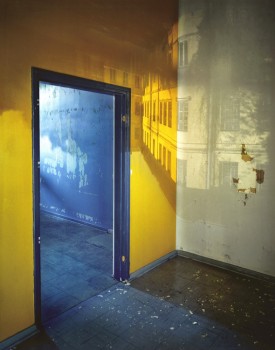
Speaking House #12, 2006. Photo: Marja PIrilä
A camera obscura (‘darkened room’) is the optical device that made photography possible; it is a box – or a room – with a hole in one side. Photographer Marja Pirilä has been using this method as a tool for almost 20 years. The book Carried by Light spans more than 30 years of her photography.
In the book artist and researcher Jyrki Siukonen notes in his essay ‘Eyes and Cameras’ that ‘in photographing spaces Pirilä also depicts people. The dreams continue on the walls of the empty building, as if after the people the house had become like them and were dreaming the dreams itself.’
Photographs and text extracts from Carried by Light by Marja Pirilä (Musta Taide, 2014)




